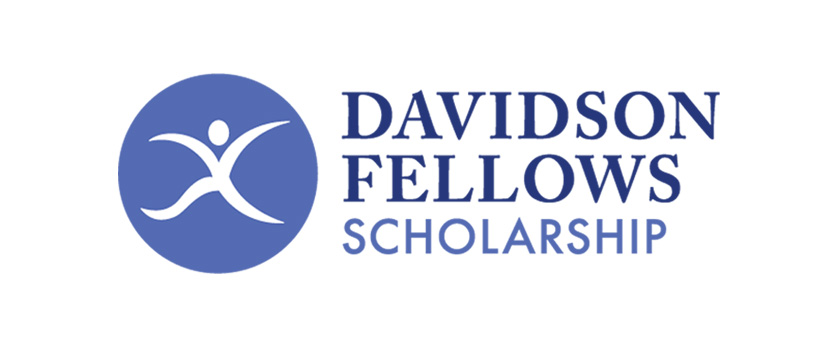10 tips from Davidson Fellows on how to be successful in STEM

We’re proud to say that 14 out of the 20 Davidson Fellows announced this year are Society alumns! We asked them for their advice on being successful in STEM – here’s what a few of them had to say.
Benjamin Firester, Intel ISEF 2016 and 2017
“Explain your work to as many people as you can. Get good at articulating it simply and concisely, even in ways accessible to children. The better you can do this, the better you understand your own work. While teaching or explaining it and receiving feedback, you might think of more experiments to run or methods to test. Every presentation or anecdote I created to share my model deepened my understanding of the field itself and inspired me to think of next steps and new possibilities.”
Davey Huang, Intel ISEF 2017
“Research is the best way to see the ‘real’ world of science.” He recommends anyone interested in science contacting research professors, because “they’re usually not as scary as they seem!”
Alexander Kirov, Regeneron STS 2017
“Young students interested in STEM should delve in and explore. Take the hard classes, dual-enroll to increase your options, and engage in the STEM extracurricular activities, or perhaps create them for others. Find what interests you, and I would encourage to contact professors in a related field. Learning through research is an experience that cannot be matched. I would highly recommend to apply to competitions like the Davidson Fellows Scholarship to broaden your understanding of Science.”
Kathy Liu, Regeneron STS 2017 and Intel ISEF 2015-2016
“Never doubt the power of curiosity and creativity! New ideas require creative innovation, so always persist on being open-minded. Also, there are so many resources, communities, and people out there to support you. There’s never a better time than now to be involved in science fields and help change the world!”
Arjun Ramani, Regeneron STS 2017 and Intel ISEF 2014-2017
Suggests those intersted in STEM research when they have any question at all. “Read some articles. The answers are actually pretty interesting.” He also encourages others to contact scientists in their communities.
Manan Shah, Regeneron STS 2017, Intel ISEF 2016, and Broadcom MASTERS 2013
“Science is a vast and fascinating subject, so my advice would be to continue exploring and asking questions! Soon, those questions will turn into research queries, experiments, and solutions of your own — so long as you are armed with a question and the tools to solve it, you’ll make your own fascinating discoveries.”
Society alumni are champions of science. You can be too by joining the Society.
Pranav Sivakumar, Regeneron STS 2017 and Broadcom MASTERS 2013
“All kids love mysteries, and science is the ultimate whodunit.” Science, he says, feeds curiosity by allowing young people to ask complex questions, challenge assumptions, and explore interesting topics. “Pursuing research, whether in STEM or any other field, is like solving a jigsaw puzzle: there is a great amount of satisfaction when the pieces start fitting together.”
Arvind Sridhar, Regeneron STS 2017 and Intel ISEF 2017
“You do not need to be an expert in order to make a breakthrough—even something that you learn in your high school math or science class, if applied in the right way, can have the potential to impact real scientific research. For me, it began by playing around with some simple calculus concepts, not knowing what I would find in the end or even if these concepts would apply at all to the problem of quantifying heart tissue contractions. The pure joy and excitement of making an unexpected discovery by putting together simple concepts is unmatched and incredible. Overall, with the right mindset, you have the ability to make a substantial impact.”
Felix Wang, Regeneron STS 2017
“Follow your passions. Do what you love and work hard, and the rest will follow.”
Vera Zarubin, Intel ISEF 2017
“Constantly push your boundaries and the boundaries of knowledge.” She thinks students should explore competitions and opportunities beyond just the ones their schools support. “Approach decision makers and push for policies that will benefit your countries and the world.Think big and consider how to create system-wide change, starting with asking the right questions and sharing your ideas with other people.”
Mary Zhu, Regeneron STS 2017 and Intel ISEF 2016-2017
Tells young people interested in science to keep feeding their curiosity. “Being intellectually curious about random phenomena may one day inspire you to start investigating an important question, which just might lead to unexpectedly innovative results.”


